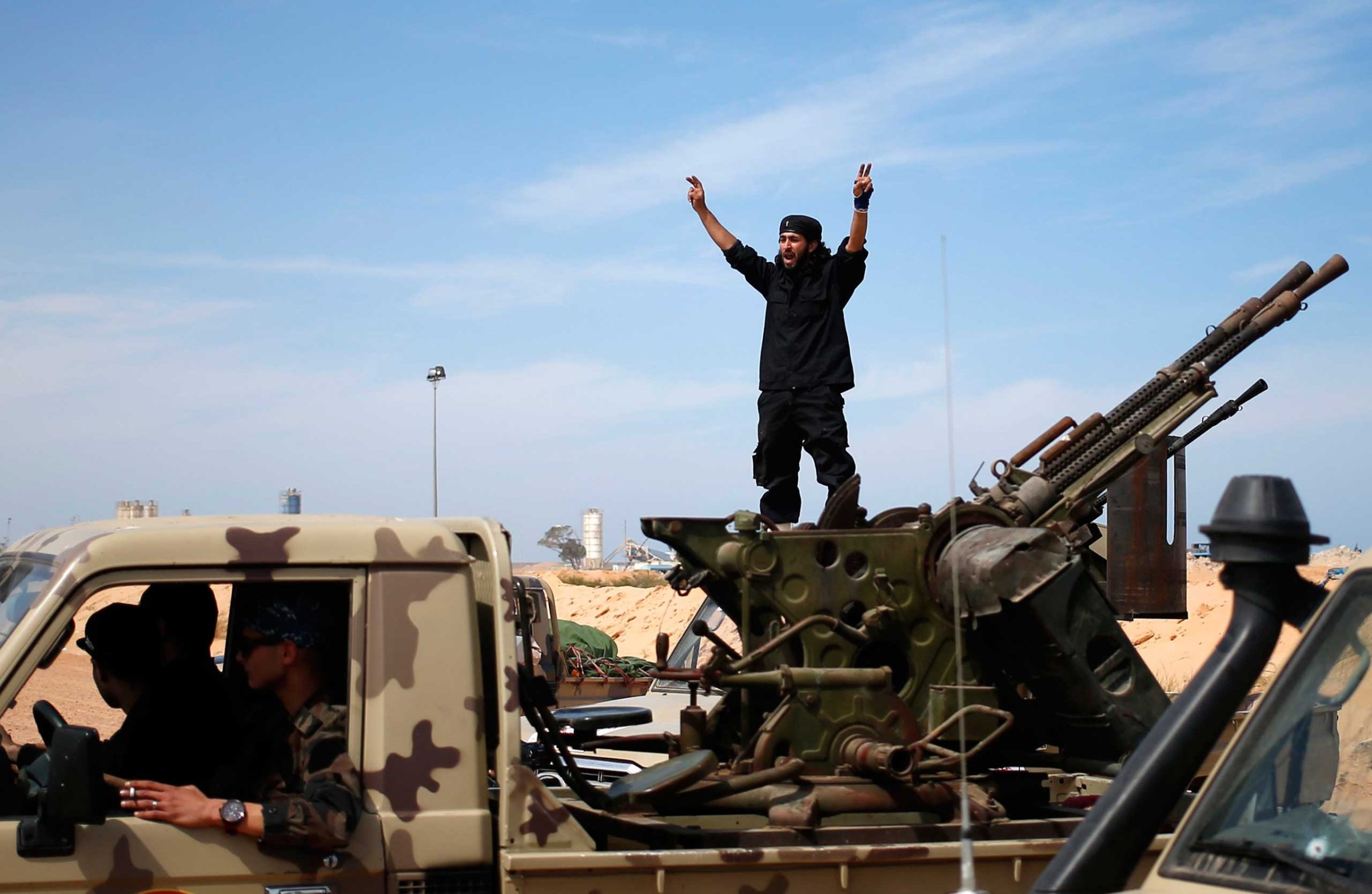
A series of attacks by militants linked to the Islamic State of Iraq and Syria (ISIS) on Libya’s oilfields is threatening to further undermine chances of stability in a country gripped by a multi-sided armed conflict.
ISIS, the militant group that took control of parts of Syria and Iraq last year, has found footholds in Libya as a result of a power vacuum engendered by civil war. Now the group’s own attacks on the country’s crucial oil infrastructure are denying resources to its rivals and creating conditions that could help it expand.
“The Islamic State is trying to use the disunity of Libyans, and the fact that there is fighting going on between rival armed groups to target Libya’s only source of income, Libya’s national wealth represented by the oil facilities,” said Mohamed Eljarh a Libya-based fellow with the Atlantic Council think tank.
“By attacking the oil sector in Libya, they will ensure that any unity government will be deprived of much of the funds they need to buy the weapons they need to face this group.” he said.
The attacks forced the national oil company to shut down operations at 11 oilfields earlier in March. In one assault on the Ghani oilfield, the militants killed at least nine people and took several workers as hostages, including four Filipinos, an Austrian, a Bangladeshi, a Czech, a Ghanaian, and one unidentified person. Libya’s overall oil production dropped to a reported 325,000 barrels per day in January, down from 1.7 million per day before the 2011 uprising.
Oil, along with the central bank and other elements of state infrastructure, has also become a focus of conflict between the warring parties, who are divided into two broad camps aligned to two competing parliaments, one in the capital Tripoli and the other — internationally recognized — in Tobruk. Powerful militias from the city of Misrata recently sent some 3,000 men in a bid to take control of the oil port at Sidra, currently controlled by forces of former rebel leader Ibrahim Jathran.
ISIS-aligned militias have also emerged as a rogue factor in Libya’s larger political conflict in which two rival governments and their allied militias are locked in an ongoing battle for control. Neither of the two main political groupings has been able to strike a decisive blow against the other. Neither has been able to dislodge ISIS from its local bases.
Among those strongholds, the city of Sirte has emerged as a flashpoint in the current crisis. ISIS controls key neighborhoods in the city. Its artillery-mounted pickup trucks patrol the streets and its black flag is flying over a large convention center, according to Claudia Gazzini, a Libya-based analyst with the International Crisis Group.
Sirte and its environs is also where ISIS militants kidnapped at least 20 of the 21 Coptic Christians whose execution they announced in a graphic online video in February. The city is also thought to be the base for attacks on the oilfields in the desert to the south.
In one such raid in February, gunmen killed the guards on the perimeter of an oilfield, then rounded up the workers, lecturing them on the Islamic State’s notion of “true Islam,” according to officials who briefed Gazzini. The attackers threatened the facility’s manager: Tell no one of this for six hours, enough time to allow the attackers to escape. Then they left, taking everything they could: Cars, equipment, guns.
Subsequent attacks have unfolded in a similar style. In each raid, Gazzini says, “They’ve gone in, looted, and gone out.”
“These are targets of opportunity for them, given the proximity to Sirte. It’s a strategy of disruption,” said Frederic Wehrey, an analyst with the Carnegie Endowment for International Peace. “They’re trying to raise their stature through these spectacular attacks and increase visibility and attract recruits.”
The ISIS presence has been a source of mounting concern for the militias in nearby Misrata. On March 14, Misratan forces clashed with ISIS fighters in Sirte, reportedly killing 25 members of the local ISIS affiliate.
“The Misratan commanders told me we’re going to have to confront this threat eventually,” said Wehrey in an interview last week. “They were reluctant to go in with force because of tribal blowback, that this would trigger some kind of tribal feud.”
Meanwhile, the identity of the militants joining ISIS is a subject of dispute among Libya’s factions. Many in the broad camp allied with Tripoli assert that ISIS includes supporters of the former regime of Muammar Qaddafi, which was brought down in an armed, NATO-supported uprising in 2011.The ICG’s Gazzini says there is evidence to suggest that some Qaddafi loyalists may have joined forces with ISIS. Unlike some armed groups that take a hard line against members of the old regime, ISIS has reportedly projected a message in Libya that anyone is welcome to join, provided they pledge loyalty and accept the group’s doctrine.
“Maybe some are faking it, but also the IS rhetoric appeals to a group of former regime officials who somehow felt persecuted in these last few years,” says Gazzini. “The message Dashis [ISIS] might have been projecting out was that of acceptance as long as they repent for their sins.”
More Must-Reads from TIME
- Why Biden Dropped Out
- Ukraine’s Plan to Survive Trump
- The Rise of a New Kind of Parenting Guru
- The Chaos and Commotion of the RNC in Photos
- Why We All Have a Stake in Twisters’ Success
- 8 Eating Habits That Actually Improve Your Sleep
- Welcome to the Noah Lyles Olympics
- Get Our Paris Olympics Newsletter in Your Inbox
Contact us at letters@time.com